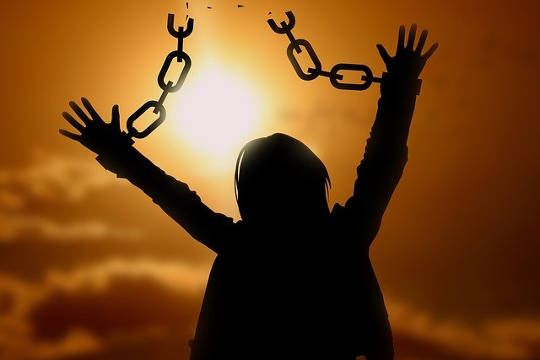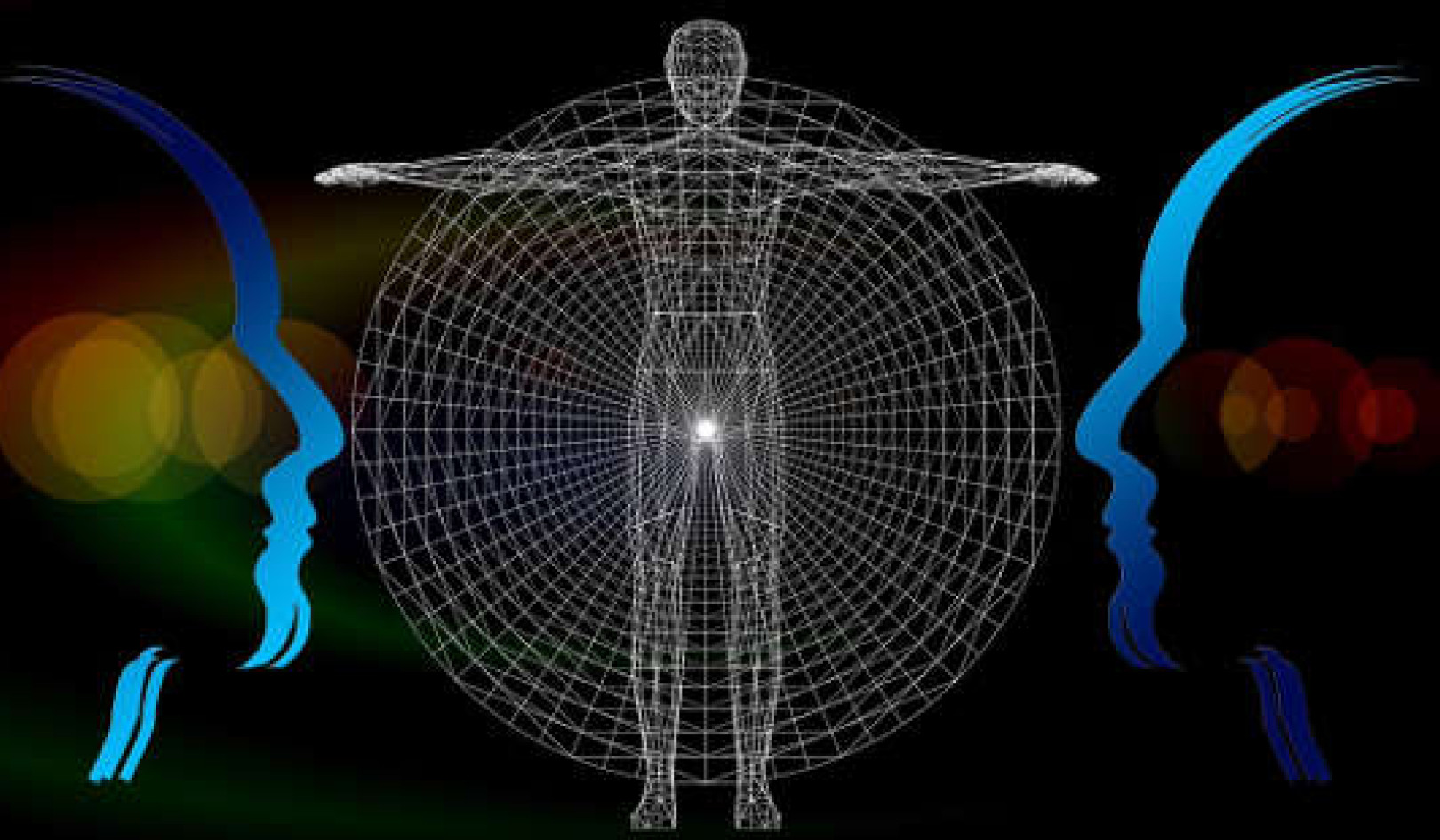
Image by Elias Sch.
The early years of your life tend to be the most karma-filled. Adolescence is often the most intense time of all in a life. The hormonal and developmental changes tend to accentuate the difficulties of that period and facilitate a climate wherein much karma can be played out. This is also the time when you experiment with the different chief negative features: self-destruction, greed, self-deprecation, arrogance, martyrdom, impatience, and stubbornness.
Generally by about the age of 21 you select one of them to settle down with. After the age of 30, karmic intensity is greatly reduced. There are exceptions to this, as is the case with those people experiencing lifetimes at the sixth level of any stage (heavy karma balancing), and those with a goal of growth.
How Karma Repayment Works
Karma is supervised and organized by essence. Often the personality knows nothing of the purpose and impending unfoldment of the karma. There is good reason for this. False personality often operates out of fear. If your conscious personality knew that an intensely painful karma were about to occur with someone, it would run as fast as possible in the opposite direction, thus avoiding the repayment or the lesson that essence had in mind.
Your personality usually feels like a victim in karmic situations. Essence planned the karma repayment without flinching. Even when you are an old soul you need this benevolent amnesia to meet your more difficult karma.
Karma usually comes with no warning even though it is essence directed. It frequently comes like a freight train rounding the bend and coming down the tracks with inexorable speed. The train is upon you before you can run away. When you are in the midst of a karmic situation you feel foggy and unclear, and you may feel strangely unable to get out of the situation. You often wonder how this happened to you all of a sudden.
You may walk innocently into a meeting and within minutes are insulted and humiliated by the new director on your job. You are instantly plunged into painful emotions and wonder what you did to deserve it. The answer is often that you didn't do anything this lifetime to deserve it. You simply showed up to balance the record sheet.
Likewise you may be penniless and lost in a foreign country and a complete stranger suddenly appears on the scene and takes you in, cares for you, and gives you an airplane ticket home.
When karma has been completed, a feeling of freedom and relief ensues. The fog clears and you gain insight into the preceding events. You become neutral about the issue that had so recently carried such intensity for you. You don't care anymore. You may even wonder how you could have been so upset about the issue.
The purpose of karma completion is to get you neutral on the issue so that you can move on to new and more interesting lessons. You have reached the neutral position on the triadic experience and you are ready for something new.
Karma as a Choice
Remember again that karma is not fate. Fate is a notion of predestination. You choose karma specifically with the purpose of undergoing an emotional or learning experience.
Think of karma as ribbons that draw together experiences and weave a distinct pattern that is the product of many lifetimes. Remember also that those ribbons cause you to be in specific places and to meet certain people, sometimes to your great surprise.
If you have a karmic debt with another individual living in a foreign country you will suddenly find yourself drawn, sometimes almost magically, to travel to that other country where the debt can be repaid. Occasionally the obstacles in the path of meeting are too great and the karma must be deferred to another lifetime.
For example, you may decide that this lifetime you will complete ten major karma, seventy-five medium karma, and one hundred and fifty minor karma. Typically you tend to bite off more than you can chew, so that if you complete most of these karma the lifetime will feel successful to you no matter how uncomfortable for your personality. Some karma will be judged too difficult to complete for now.
Completing A Karma
There is always free choice about when to complete a karma. The choice to complete it is made by essence at the time of initiation of the karma. It will always be completed.
Let us say that you have karma with a Mr. Chang who resides in China, and you live in Brazil. On an essence level you feel an urge to return the good deeds he has done for you in the past that will take a full year to repay. You however have not been able to travel to China and are heavily involved in completing and creating karma in your locality. Mr. Chang is able to visit Brazil for one week and you feel a pull to attend a lecture he is giving in a nearby city. You go out of your way to see him even though the topic is not of interest to you. You realize that although you are strongly attracted to him you will not be able to complete the karma in this life because of his short stay.
Such flirting with karma is a common experience and happens all the time. On the other hand, if Mr. Chang announced that he would be in the vicinity for several years, the pull to complete the karma would be almost irresistible.
Sexual attraction is one of the greatest facilitators of karma. When an imbalance exists between two people there is a strong essence-driven impetus to balance the record sheet. However, personality may sense a possible danger and wish to avoid the situation. Strong sexual attraction will make this avoidance less likely.
For example, if you embezzled a large sum of money from Marsha in an earlier lifetime and you suddenly run into Marsha in this lifetime you may want to run and hide. You sense that she has come to collect. However if you are distracted by the fact that Marsha is now a beautiful blonde, your very type, then your lust will lead you directly into the karma. How convenient. You may later wonder how you ever could have gotten involved with her after she has divorced you and taken your house and car in repayment.
Karma and Time
How long does karma last? Is there a time limit or a way to speed it up? The answer is not a simple one.
Sometimes karma lasts only for a few seconds, such as a short intense pain; other times karma can last a whole lifetime, such as having a benevolent aunt who constantly looks out for you for many years. In another vein, a foe can cause you the loss of your arm early in life, a handicap that can last for decades. The length of the karmic experience is directly in proportion to the length of the first incident.
If you deprive someone of the use of their legs for twenty years then this becomes a twenty-year karma. If you cut short someone's life by one year then your own life will be cut short by one year in a later life. If you raise an orphan with kindness and generosity for twelve years then you will be repaid with a twelve-year kindness. Balance then, is the name of the game.
However, you can drag karma on, escalate it or creatively manipulate it according to the experiences and lessons desired by all parties involved. In order for karma to be truly complete, everyone involved must acknowledge the completion of it at an essence level.
Karma can be such a delicious source of growth and lessons that often all parties would rather refuse to recognize the repayment and generate more karma instead. The karma builds and becomes more intense lifetime after lifetime, until ultimately the lesson of forgiveness is learned.
Sometimes a person will feel an intense tug to repay a karmic debt that they owe you. You may recoil at their appearance and try to avoid them based on past painful experience. This is like saying "Oh no! Not you again! I'm getting out of here!" So the chase is on until the debt is repaid.
However, people are not always successful at repaying the karma.
For example, Tom may owe Susan for abandonment one lifetime. Men they meet again the intention is to repay the debt. Nevertheless Tom may get cold feet at the prospect of being abandoned and instead repeat the original offense by abandoning Susan all over again. The karma then has just escalated.
Small wonder then that some people get skittish when they see their old enemy show up. The question arises "Am I about to be repaid or am I about to be burned again?" The game of cat and mouse can go on for centuries. Again, in the end, all is forgiven, balanced, and completed.
Occasionally you play the game of "Who can be the most generous?" lifetime after lifetime, by building karma of a positive nature with someone. On the other hand, old souls wishing to cycle off the planet become adept at completing karma efficiently and creatively, sometimes accomplishing several at the same time.
This article was excerpted with permission
from Tao To Earth, published by Bear & Co., Sante Fe, NM.
an impprint of Inner Traditions Intl. www.innertraditions.com
Book by this Author
Awaken the Inner Shaman: A Guide to the Power Path of the Heart
by Jose Stevens Within you is a greater, wiser self that is not bound by your fears, worries, or perceived limitations. Dr. José Luis Stevens calls this the Inner Shaman?the part of you that connects directly to the true source of the universe. With Awaken the Inner Shaman, he presents a direct and practical guide for opening our eyes to the greater wisdom and knowing within?and stepping into the power and responsibility we possess to shape and serve our world. (Also available as a Kindle edition.)
Within you is a greater, wiser self that is not bound by your fears, worries, or perceived limitations. Dr. José Luis Stevens calls this the Inner Shaman?the part of you that connects directly to the true source of the universe. With Awaken the Inner Shaman, he presents a direct and practical guide for opening our eyes to the greater wisdom and knowing within?and stepping into the power and responsibility we possess to shape and serve our world. (Also available as a Kindle edition.)
More Books by this Author
About the Author
 José Luis Stevens, PhD, is an international lecturer, teacher, consultant, and trainer. A psychologist, licensed clinical social worker, and author of eighteen books and e-books, as well as numerous articles, he is also on the board of the Society of Shamanic Practitioners. He is the cofounder of the Power Path School of Shamanism and the Center for Shamanic Education and Exchange. He completed a ten-year apprenticeship with a Huichol marakame and has studied extensively with the Shipibos of the Amazon and the Q’ero of the Andes for the last twenty years. He has a doctorate in integral counseling from the California Institute of Integral Studies, an MSW from the University of California, Berkeley, and a BA in sociology from the University of Santa Clara, California. For more info, visit www.thepowerpath.com
José Luis Stevens, PhD, is an international lecturer, teacher, consultant, and trainer. A psychologist, licensed clinical social worker, and author of eighteen books and e-books, as well as numerous articles, he is also on the board of the Society of Shamanic Practitioners. He is the cofounder of the Power Path School of Shamanism and the Center for Shamanic Education and Exchange. He completed a ten-year apprenticeship with a Huichol marakame and has studied extensively with the Shipibos of the Amazon and the Q’ero of the Andes for the last twenty years. He has a doctorate in integral counseling from the California Institute of Integral Studies, an MSW from the University of California, Berkeley, and a BA in sociology from the University of Santa Clara, California. For more info, visit www.thepowerpath.com





























